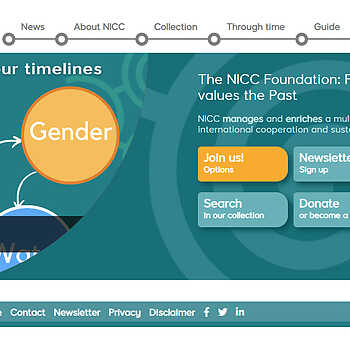Organization of the timeline
The timeline is divided in eight phases in line with shifts in focus in international and Dutch policies related to the position of agriculture in economic and social development. For each time period examples are given how agricultural development and food security objectives were pursued in Dutch development cooperation.
The first section highlights two underlying forces that have influenced Dutch efforts to promote agricultural development and food security in varying degrees throughout the 75 year period (1949-2024) namely the merchant and clergyman dichotomy and the imperative to pursue global security.
The second section lists some themes/topics that have featured prominently in ‘the Dutch Approach’ albeit to varying degrees in different periods depending on the policies of the Dutch government at the time. Some of these have or are being further elaborated in separate timelines dealing with topics[1].
Each time period broadly corresponds with international trends and shifts in Dutch policy focus. Within each time period, some topics and initiatives that are considered as core elements during that period and/or illustrate what the challenges and opportunities were at the time, are dealt with in more detail (sub-topics).
During each period different policy priorities prevailed (thematic focus) while each strategy leads to different implementation modalities (decentralization, delegation, civic involvement, private sector engagement, etc). Strategic dilemma’s relate to paradigmatic debates (basic needs vs rights), balance between professional (DTH, SNV) and financial support, budgetary implications and shifts in aid and trade.
The next section is a more detailed discussion of inherent tensions that shape policies and practice in Dutch Development Cooperation to promote Agriculture, Rural Development, and Food Security in developing countries beyond the well known dichotomy between the merchant and the clergyman[2]. These tensions reflect the, sometimes conflicting, interests of different actors involved (policy makers, civil society groups and the private sector) and the understanding of how development can or should be pursued.
A final section will focus on lessons learned and current opportunities and challenges with specific reference to the impact of climate change, loss of biodiversity, conflicts and human health hazards on policies and programs for international cooperation for agricultural development and food security. This forward looking section will also highlight future perspectives based on these challenges and the prevailing political context. The final section will be developed in consultation with resource persons and other experts and posted on the NICC website. A timeline launch event will be held in November 2024 in collaboration with FoodFirst/Socires and the International Institute for Social Studies (ISS) under Erasmus University, to draw out lessons learned and future perspectives.
Additions and changes to the timeline can be sent to: foodtimeline@stichtingnicc.nl.
NICC collection - search engine
